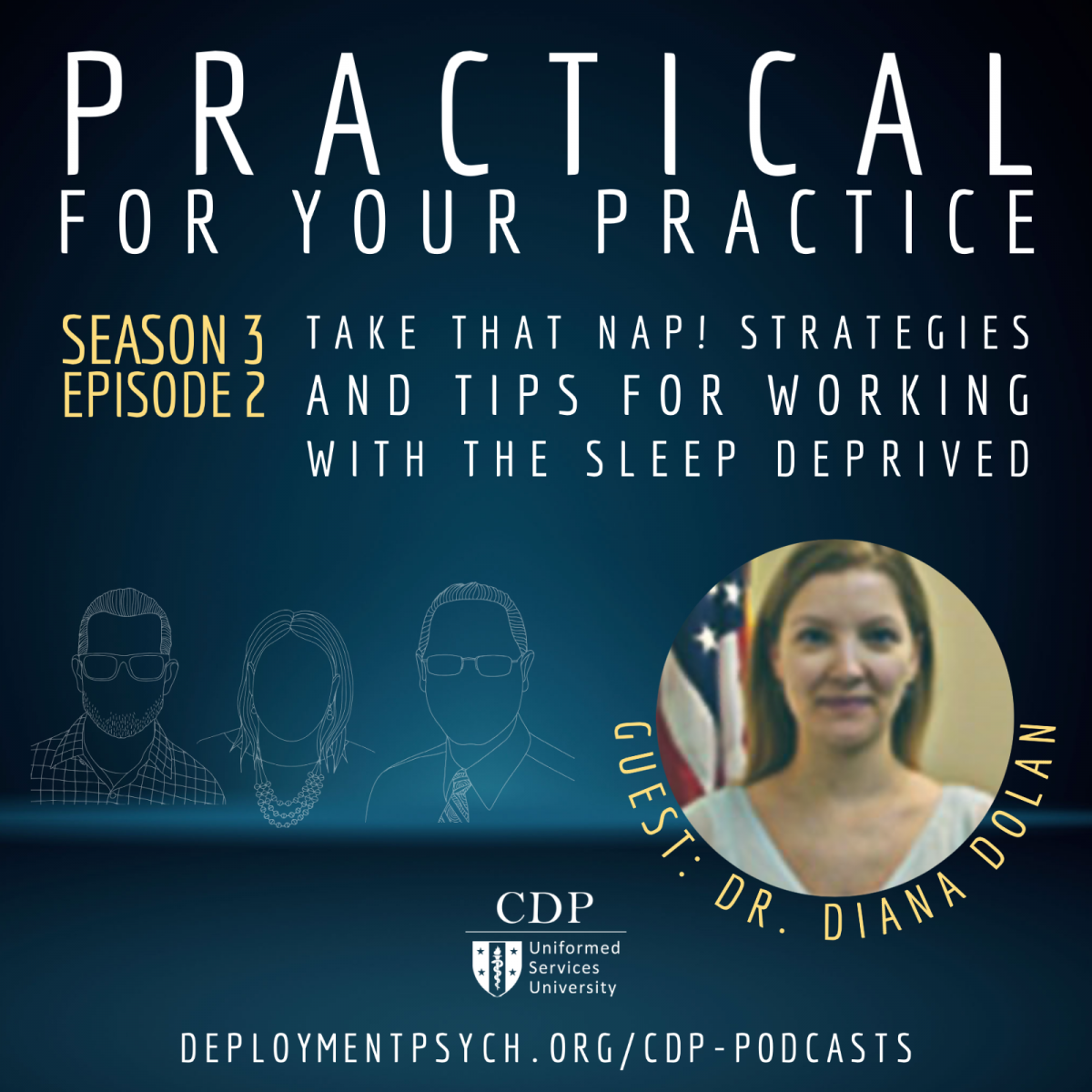 Episode 2, Season 3: "Take That Nap! Strategies and Tips for Working with the Sleep Deprived"
Episode 2, Season 3: "Take That Nap! Strategies and Tips for Working with the Sleep Deprived"
Guest: Dr. Diana Dolan
When we think of “sleep problems,” most of the time, our brains go to insomnia – that group of people we work with who have difficulty falling asleep or staying asleep despite adequate opportunity to sleep. But what about the opposite side of the sleep coin… or pillow, if you will? What about the group of folks who desperately want sleep, need sleep, crave sleep, AND could sleep if only given adequate opportunity to do so?
In this episode, we sit down once again with one of CDP’s sleep experts, Dr. Diana Dolan, to talk about sleep deprivation and the associated functional impairments. Given sleep deprivation can be a common presenting problem for our military-connected clients, we encourage you to join us to learn some useful tips and strategies when working with sleep-deprived individuals both in survival mode during crisis situations as well as how to help prioritize sleep for those who have more flexibility. We all need sleep to survive so be sure to check out the actionable intel in this episode to maximize sleep for your clients on the sleep deprivation continuum. Spoiler alert: take that nap!
 |
 |
 |
Show Notes:
Diana C. Dolan, Ph.D., CBSM, DBSM, is a clinical psychologist serving as a Senior Military Behavioral Health Psychologist with the Center for Deployment Psychology at the Uniformed Services University of the Health Sciences in Bethesda, Maryland. In this capacity, she develops and presents trainings on various EBPs and deployment-related topics and provides consultation services.
Resources mentioned in this episode:
Calls-to-action:
Subscribe to the Practical for Your Practice Podcast
Subscribe to The Center for Deployment Psychology Monthly Email
This podcast is produced by the Center for Deployment Psychology at the Uniformed Services University of the Health Sciences. The views expressed are those of the speakers and do not necessarily reflect the opinions of the Uniformed Services University, the Department of Defense, or the US Government. In addition, reference to any specific company, products, processes, or services does not necessarily constitute or imply endorsement by the Uniformed Services University, the Department of Defense, or the US Government.
